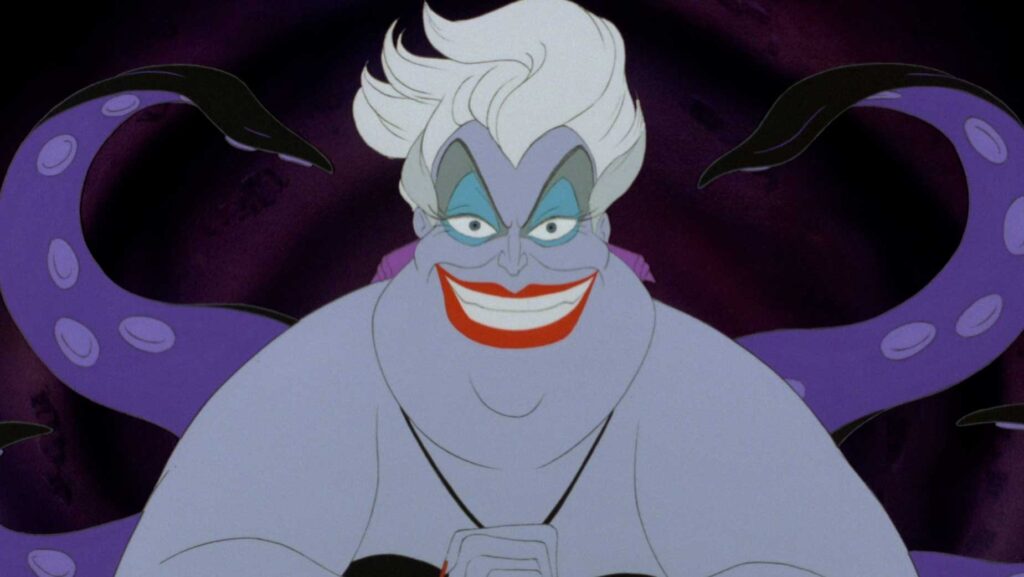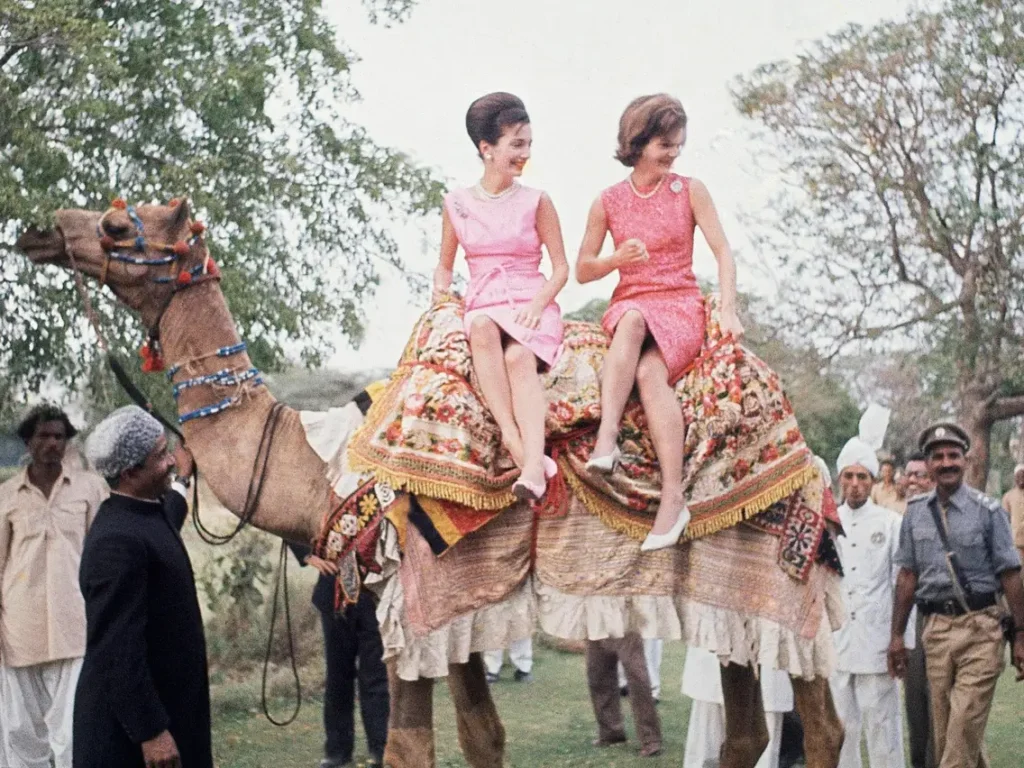Ursula, the sea witch from Disney’s “The Little Mermaid,” is an iconic villain renowned for her menacing presence and captivating personality. Throughout the years, she has captured the imagination of audiences worldwide with her devious schemes and memorable quotes. Let’s delve deeper into the enigmatic character of Ursula and explore her significance in the realm of animated antagonists.
Introduction to Ursula
Ursula, often referred to as the “Sea Witch,” is a central figure in Disney’s animated classic “The Little Mermaid.” Created by Disney’s talented team of animators and writers, Ursula serves as the primary antagonist of the film, posing a formidable threat to the protagonist, Ariel, and the underwater kingdom of Atlantica. Her character is pivotal to the plot, driving conflict and tension throughout the narrative.
Background Information
Ursula’s origins are shrouded in mystery, adding to her mystique as a villain. While her backstory is not extensively explored in the film, it is implied that she was once a member of King Triton’s court before being banished for unspecified reasons. This exile fuels her resentment towards King Triton and motivates her quest for power and revenge.
Ursula’s Appearance and Characteristics
Ursula’s appearance is striking and distinctive, making her instantly recognizable to audiences of all ages. She is depicted as a large, imposing figure with lavender skin, tentacle-like limbs, and a commanding presence. Her design blends elements of traditional sea creatures with exaggerated features, emphasizing her otherworldly nature.
Physical Description
With her menacing grin, sharp features, and mesmerizing eyes, Ursula exudes an aura of malevolence that sets her apart from other Disney villains. Her iconic design, characterized by her voluminous tentacles and flowing attire, has solidified her status as one of the most visually memorable characters in animation history.
Personality Traits
Ursula possesses a cunning and manipulative personality, using her wit and charm to deceive unsuspecting victims. She is portrayed as charismatic yet sinister, capable of luring others into her schemes with promises of fulfilling their deepest desires. Despite her villainous nature, Ursula’s confidence and charisma make her a compelling and dynamic antagonist.
Ursula’s Role in the Plot
Throughout “The Little Mermaid,” Ursula orchestrates a series of devious schemes to achieve her nefarious goals. From striking deals with desperate merfolk to manipulating events behind the scenes, she remains a constant threat to Ariel and her allies. Ursula’s actions drive much of the conflict in the film, culminating in a climactic showdown with the protagonist.
Antagonistic Actions
Ursula’s schemes range from subtle manipulation to outright coercion, demonstrating her willingness to use any means necessary to achieve her objectives. Whether it’s tempting Ariel with a Faustian bargain or sabotaging her attempts to win Prince Eric’s affection, Ursula stops at nothing to further her own agenda.
Influence on Main Characters
Ursula’s influence extends beyond mere villainy, shaping the destinies of the film’s main characters in profound ways. Her interactions with Ariel catalyze the young mermaid’s journey of self-discovery and empowerment, forcing her to confront difficult choices and consequences along the way.
Analysis of Ursula’s Motivations
At the heart of Ursula’s villainy lies a complex web of motivations driven by ambition, resentment, and a thirst for power. Her actions are fueled by a desire to reclaim her former position of authority and settle the score with her adversaries.
Desire for Power
Ursula’s lust for power is evident throughout the film, as she seeks to expand her influence and control over the underwater kingdom. Her mastery of dark magic and manipulation tactics serves as a means to an end, allowing her to exert her will over others and bend them to her whims.
Revenge Against King Triton
Central to Ursula’s motivations is her deep-seated animosity towards King Triton, the ruler of Atlantica and Ariel’s father. Her banishment from his court serves as a source of resentment and bitterness, driving her relentless pursuit of vengeance against him and his family.
Ursula’s Cultural Impact
Ursula’s villainy has left an indelible mark on popular culture, solidifying her status as one of Disney’s most iconic characters. Her distinct appearance, memorable quotes, and compelling backstory have endeared her to generations of fans worldwide.
Popularity Among Fans
Despite her status as a villain, Ursula remains a beloved and iconic figure among Disney enthusiasts of all ages. Her unique blend of charisma, wit, and malevolence has earned her a dedicated fanbase and a prominent place in Disney lore.
Influence on Disney Villains
Ursula’s influence extends beyond her character, shaping the portrayal of Disney villains in subsequent films and media. Her archetype of the charming yet malevolent antagonist has been emulated and reimagined in various forms, contributing to the diversity and depth of Disney’s rogues’ gallery.
Controversies Surrounding Ursula
While Ursula is celebrated as one of Disney’s most memorable villains, her character has also sparked controversy and debate among audiences and critics alike. From feminist interpretations to criticisms of her portrayal, Ursula’s legacy is not without its complexities.
Feminist Interpretations
Some scholars and critics have interpreted Ursula as a symbol of female empowerment, citing her agency and assertiveness as positive attributes. They argue that her refusal to conform to traditional gender norms and her pursuit of power challenge conventional stereotypes of femininity.
Criticisms of Portrayal
Conversely, Ursula’s portrayal has been scrutinized for perpetuating negative stereotypes and tropes, particularly regarding her appearance and demeanor. Critics have raised concerns about the depiction of Ursula as a fat, villainous character, suggesting that it reinforces harmful stereotypes and prejudices.
Ursula’s Legacy
Despite the controversies surrounding her character, Ursula’s legacy endures as one of Disney’s most iconic and enduring villains. Her impact on popular culture can be seen in various adaptations, references, and tributes spanning film, television, and other forms of media.
Endurance in Popular Culture
Ursula’s influence extends far beyond the confines of “The Little Mermaid,” permeating popular culture in myriad ways. From Halloween costumes to internet memes, her iconic status ensures her continued relevance and recognition among audiences of all ages.
Adaptations and References
Ursula has been featured in numerous adaptations and reimaginings across various media, cementing her status as a cultural icon. Whether in film, television, or literature, her character continues to captivate audiences with her timeless appeal and enduring legacy.
Conclusion
In conclusion, Ursula stands as a quintessential example of a memorable and multifaceted villain, leaving an indelible mark on the world of animation and popular culture. From her iconic design to her complex motivations, she continues to fascinate and enthrall audiences with her wicked charm and captivating presence.
5 Unique FAQs
- Why is Ursula often portrayed as a larger-than-life character?
Ursula’s physical size serves as a visual representation of her imposing presence and formidable power. It also contrasts with the petite and delicate appearance of other characters, emphasizing her role as a menacing antagonist. - What makes Ursula’s character so compelling to audiences?
Ursula’s character possesses a unique blend of charisma, wit, and malevolence that makes her both captivating and relatable to viewers. Her complex motivations and dynamic personality add depth and intrigue to her character, making her a compelling figure in storytelling. - Was Ursula inspired by any real-life figures or myths?
While Ursula’s character draws inspiration from various sources, including folklore and mythology, she is a wholly original creation of Disney’s animators and writers. However, her design and character traits may have been influenced by archetypal figures of myth and legend. - What sets Ursula apart from other Disney villains?
Ursula’s character stands out for her unique blend of charm, wit, and ambition, which sets her apart from more traditional portrayals of villainy. Unlike some Disney villains who are motivated solely by greed or power, Ursula possesses a complex and nuanced personality that adds depth to her character. - How has Ursula’s character evolved?
While Ursula’s core characteristics have remained consistent across various adaptations and reinterpretations, her portrayal has evolved to reflect changing cultural attitudes and sensibilities. In some interpretations, she may be portrayed with greater complexity or nuance, while in others, her character may be reimagined to suit a modern audience.

